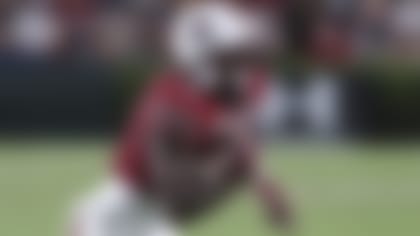The Eagles' bank-breaking, headline-grabbing free-agent haul in the summer of 2011 created plenty of buzz in Philadelphia -- and everywhere else -- but it also led to a spectacular crash a couple months later.
That much we know is true.
Also true: That spending spree represented, really, only half of the story. And after the front-office shakeup of last week on the south side of town, the biggest news from the team on the field came in the form of a five-word missive from the Twitter account of quarterback Michael Vick.
"Super Bowl," it read, "#thatisall".
What happened last summer, really, was part of a two-year plan for the Eagles to secure their future. Did they expect to go 8-8? Nope. When the since-jettisoned Vince Young called Philly a "Dream Team," his thoughts weren't really that far off from how a lot of others felt at the NovaCare Complex.
But it was never about just one season, or one team. It was about setting up the kind of core that could go on a run like Andy Reid's troops did in the early 2000s, getting to four straight NFC title games.
After locking up one such player (LeSean McCoy) last month, Reid said, "We have good, young players here who enjoy playing for the city of Philadelphia. If you're going to be accepted into this city, there's a certain attitude that you need to bring. We felt like we had a great nucleus of guys, LeSean being one of that group."
Really, the building of that group started during the lockout.
Last spring, with the time before training camp dwindling and the players staying away, the Eagles figured that there would be opportunities to make splash moves at prices that weren't astronomical. The market, the logic held, would be crowded because 2010 rules that restricted movement added another layer of players; and there would be a scarcity of bidders, because of the feeling that assimilating new pieces in short order would be tough.
Instant Debate: Most improved team?
With the draft and most of free agency behind us, which team has improved the most this offseason? Let's debate! **More ...**
The other reason it made sense for Philly: The contract structure of its own roster. A number of important pieces -- including McCoy, Todd Herremans and Trent Cole -- had two or more years left on their own deals, and the team had the franchise tag to retain DeSean Jackson. This liberated Eagles brass to jump headlong into last summer's buyer's market.
So they got Nnamdi Asomugha for $60 million over five years, and added defensive linemen Cullen Jenkins and Jason Babin for a relative bargain of a combined $12 million per season. They also dealt for Dominique Rodgers-Cromartie, cashing in the chip they had in Kevin Kolb, and took care of Vick's contract.
Although the Eagles haven't made nearly as big a splash this offseason, they've successfully executed the second phase of the plan to lock up the core. At a cost of approximately $70 million guaranteed, they extended the contracts of Cole, Herremans and McCoy, built Jackson a deal off the franchise tag, and managed to keep Mathis, too.
Now, the downside in all of this isn't hard to uncover. The very reason why the Eagles projected the 2011 market would fall the way it did -- because teams thought it would be tough to ingratiate newcomers into an existing scheme, locker room culture, and environment in an abbreviated period of time -- ended up biting Philly in the end.
It was no wonder when the Eagles struggled to find an identity early and stumbled to a 4-8 start. Jenkins told me in October he wished the "Dream Team" label had never been affixed to a team struggling to put its talented pieces together.
And with the price having been paid, the club goes forward.
Were the 2011 Eagles a failure? By almost any measure, yes.
But that doesn't mean the summer of 2011 was, too.
Follow Albert Breer on Twitter @AlbertBreer












